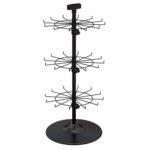When health issues arise unexpectedly, finding prompt and reliable medical care becomes essential. Walk-in clinics provide a convenient solution, offering immediate medical attention without the need for an appointment. Navigating the options available can be daunting, but with the right approach, you can locate the best walk-in clinic suited to your needs. This guide will help you understand the essential factors to consider, ensuring you make an informed decision.
Understanding Walk-In Clinics And Their Services
Walk-in clinics serve as a bridge between emergency rooms and primary care physicians. These facilities typically handle non-life-threatening conditions such as minor injuries, infections, and routine health screenings. Their accessibility makes them an ideal choice for individuals requiring quick medical assistance without the lengthy wait times associated with emergency departments.
The range of services provided can vary significantly from one clinic to another. Some may offer comprehensive care, including diagnostic tests, vaccinations, and chronic disease management. Others might specialize in urgent care, focusing on acute conditions needing immediate attention. Familiarizing yourself with the scope of services offered by different clinics is the first step toward finding the most appropriate care provider like Magnolia Family Urgent Care for any emergency situation.
Evaluating Proximity And Accessibility
Location plays a crucial role in selecting a walk-in clinic. In emergencies, proximity is paramount, as reaching the clinic swiftly can make a significant difference in health outcomes. Use online maps and directories to identify clinics within a reasonable distance from your home or workplace. Consider transportation options, parking availability, and the ease of access via public transit if necessary.
Besides physical proximity, assess the clinic’s hours of operation. Some clinics offer extended hours, including evenings and weekends, which can be particularly beneficial for individuals with demanding schedules. Prioritize clinics that align with your availability, ensuring you can receive care when you need it most.
Assessing Qualifications And Expertise
The quality of care provided at walk-in clinics largely depends on the qualifications and expertise of the medical staff. Look for clinics staffed by board-certified physicians, nurse practitioners, and physician assistants with experience in urgent care or family medicine. Verify their credentials through the clinic’s website or reputable online medical directories.
Additionally, consider the clinic’s reputation within the community. Online reviews and patient testimonials can offer valuable insights into the quality of care and patient satisfaction. Look for consistently positive feedback regarding the professionalism, attentiveness, and competence of the medical staff. Avoid clinics with numerous negative reviews or complaints about inadequate care or unprofessional behavior.
Comparing Costs And Insurance Coverage
Cost is a significant factor when choosing a walk-in clinic. While these clinics are generally more affordable than emergency rooms, prices can still vary widely. Inquire about the cost of common services, such as consultations, lab tests, and procedures, to get a sense of the clinic’s fee structure. Some clinics offer transparent pricing information on their websites, making it easier to compare costs.
Insurance coverage is another critical consideration. Verify whether the clinic accepts your health insurance plan and understand what portion of the visit will be covered. Clinics within your insurance network usually result in lower out-of-pocket expenses. For uninsured individuals or those with high-deductible plans, inquire about self-pay rates or payment plans to manage healthcare costs effectively.
Prioritizing Comfort And Communication
The environment and communication style of a clinic are also crucial factors in determining the quality of your experience. A clean, welcoming environment can significantly impact your comfort and stress levels during a visit. Pay attention to the cleanliness of the waiting area, examination rooms, and restrooms. Friendly, helpful staff can make a difference in how comfortable and supported you feel.
Effective communication between patients and healthcare providers is vital for accurate diagnosis and treatment. Choose a clinic where the medical staff takes the time to listen to your concerns, explain diagnoses and treatment options clearly, and answer any questions you may have. Language barriers should also be considered; if you are not fluent in English, find a clinic where the staff can communicate effectively in your preferred language or offer translation services.
Conclusion
Finding the best walk-in clinic near you involves careful consideration of several factors. Understanding the range of services offered ensures you select a clinic that meets your healthcare needs. Evaluating proximity and accessibility guarantees you can reach the clinic quickly in urgent situations. Assessing the qualifications and expertise of the medical staff provides confidence in the quality of care you will receive. Comparing costs and insurance coverage helps manage healthcare expenses, while prioritizing comfort and communication enhances your overall experience.
By taking the time to research and evaluate these elements, you can find a walk-in clinic that offers prompt, professional, and affordable medical care. Whether you need immediate attention for an unexpected illness or injury, or you require routine health services, the right walk-in clinic can provide the support and care you need when you need it most.
Also Read: Why Outsource Medical Billing is a Smart Move for Healthcare Providers



